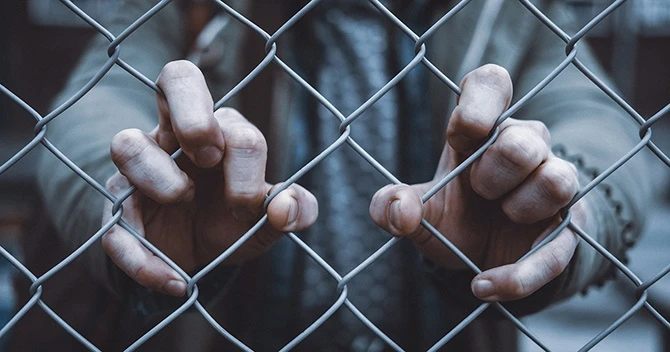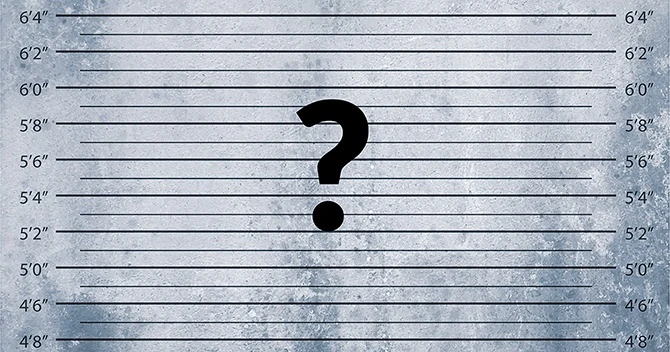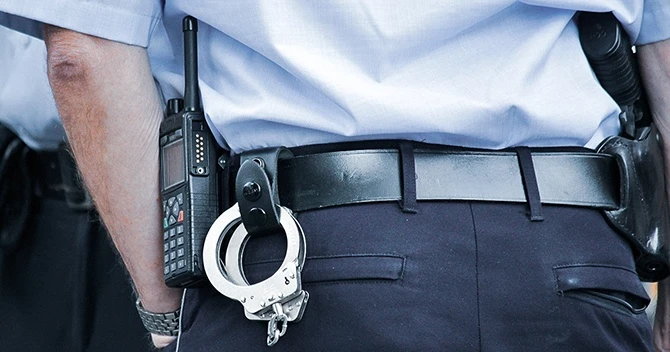When Should You Find Criminal Records
Searches for people on the Internet originally started with the intent of looking for a lost friend or connection from years ago, learning more about a potential threats, and finding out if the man or woman you're dating has a shady, dark past. There are appropriate intents for when you must look for a person's criminal record. They include but are not limited to the following:- Locating an address
- Self-research
- Searching neighbors
- Looking up online dates
- Finding family members
- Finding a lost connection
- Tenant Screening
- Educational Screening
- Employment Screening
- Determining Credit Eligibility
- Insurance Programs
- Stalking
- Identity theft
What Consists Of A Criminal Record?
An individual's criminal record can consist of the following things:Keep in mind that some of these reports can be considered null and void if a person was either found innocent of the crime or released due to lack of evidence (i.e.--Arrest report). This will likely depend upon the jurisdiction. However, something like an arrest record in most instances may not count as the subject was arrested, but not formally charged and convicted of a crime in question.A criminal record will also have a list of crimes (misdemeanor or felony) that you are convicted of and include the sentence. These include jail or prison terms served, time of probation served, parole grants, and even violation of probation or parole.Let's break down each of what you'll find in a criminal record should you successfully obtain one:Arrest Records
 Believe it or not, a criminal record begins with an arrest. One thing to know before searching for an arrest record is that an arrest does not constitute guilt. As the saying goes, "suspects are innocent until proven guilty". This should be kept in mind whenever an individual is going through any type of criminal legal proceeding. People can get arrested if they are suspected of a crime and records are always made by the arresting officer.
Believe it or not, a criminal record begins with an arrest. One thing to know before searching for an arrest record is that an arrest does not constitute guilt. As the saying goes, "suspects are innocent until proven guilty". This should be kept in mind whenever an individual is going through any type of criminal legal proceeding. People can get arrested if they are suspected of a crime and records are always made by the arresting officer.What Is In An Arrest Record?
It should be noted that an arrest record is different from other parts of a criminal record. That's because this type of record will show whether or not a person has ever been arrested. Here is what you may expect to see in an arrest record:- The charge or offense
- The category of the charge or offense (misdemeanor or felony)
- Source of the arrest record
- The state where the source is located
- First, Middle, and Last Name of the subject
- Dates of the charges or offenses
- Location where the alleged crime occurred
- Type of case and the case number
- Name of the court involved
Why Are Arrest Records Public?
In 1967, legislation known as the Freedom of Information Act allowed access of such records like arrest records to the American public. However, there are exceptions. Individuals can view arrest records with the exception of those that are either active or pending. It should be noted that some states will exclude arrest information when the subject is acquitted, expunged, or released due to lack of charges.Is It Free To View Arrest Records Online?
Because of the sensitive information that is contained in these records, individuals who wish to view these records may have to pay a fee. Meanwhile, your alternatives do include such places such as city or county courts or clerk offices. They can also be available upon request. Please note that additional fees do apply if you choose to obtain these records by offline sources.What Should You Use Arrest Records For?
Arrest records should be used for informational purposes only. You can obtain them if you are doing any kind of research or need to know any recent information on people that include but are not limited to:- Dates or new relationships
- Family members
- Classmates
- Friends
- Inmates
- Yourself
Is The Information Accurate?
If you have received an arrest record that belongs to you, check to see if the following information is accurate:- Date Of Birth
- Spelling of All Names
- Place of Birth
- Place of Residence
Court Records
Obtaining court records can be a difficult task. Most will believe the fact that this type of record can only be accessed physically by way of a government agency. However, if you go down this path, expect to jump through a lot of bureaucratic hoops. Yes, everyone is entitled to their right to privacy. But that privacy exists at a certain level. However, it is important for us to know who we are dealing on a regular basis. If you ever wondered whatever happened to an old classmate you haven't seen since graduation, you can simply find a way to look them up.With CheckPeople, you don't have to jump through all kinds of hoops to get a certain person's court records. Because of our advanced background check, you can get a court report made available to you in as little as five minutes. All you need to do is enter the first name, last name, and location. CheckPeople will look through various sources where court documents are stored and compile a report for you to read.Mugshots
 When you think about criminal records, you also know that a mugshot from a person's previous arrest may exist. And yes, even those are considered public record since they are part of a person's criminal record.If you don't know what a mugshot is, we'll explain? A mugshot is an identifying portrait style photo shot of a person that law enforcement takes once a criminal is caught and booked. It is derived from the term "mug", a slang term for face. Another name for them are booking photos. There are several databases that exist when finding these mugshots. Some of them are easy to use while others will be tough to navigate. If you are looking to acquire one from state government websites, you can expect to pay a fee.
When you think about criminal records, you also know that a mugshot from a person's previous arrest may exist. And yes, even those are considered public record since they are part of a person's criminal record.If you don't know what a mugshot is, we'll explain? A mugshot is an identifying portrait style photo shot of a person that law enforcement takes once a criminal is caught and booked. It is derived from the term "mug", a slang term for face. Another name for them are booking photos. There are several databases that exist when finding these mugshots. Some of them are easy to use while others will be tough to navigate. If you are looking to acquire one from state government websites, you can expect to pay a fee.What Is The Purpose Of A Mugshot?
The purpose of a mugshot is for law enforcement officials to have photographic proof of the person they have arrested. It will also be used in the event to identify a suspect based on past criminal charges and bookings. At the same time, they'll use this as proof to inform the public and the media that they have captured the right suspect. This can also come in handy in the event a subject can be lying about their name or address. If this were the case, all law enforcement has to do is scan the subject's face in question and pull up the real information.Having a mugshot can also save someone the headache of being a victim of mistaken identity. As an example, a person who is a victim of identity theft can have a crime they never committed pinned on them, because the real offender used their name and other information. Making them available to the public is important because anyone looking for a criminal record of a neighbor or a friend would need photographic proof to make sure if it is indeed the same person.Can You Refuse A Mugshot?
Short answer: No. You cannot refuse a mugshot. Nor can you refuse to be fingerprinted. A mugshot and fingerprint record does not interfere with your right to due process. Law enforcement reserves the right to force a subject to have their mugshot taken.According to the Fifth Amendment, it states that no one shall be "deprived of life, liberty, or property without due process of the law". Due process allows an individual fair treatment while they are being tried in a court of law. And such process can help determine if a subject is guilty or innocent of a crime. Even if they are being tried for criminal offenses, a subject does have rights they can exercise (such as the right to remain silent and request legal counsel while being questioned or appearing in court).Why Would You Search For a Mugshot?
There could be numerous reasons why you would want to find a mugshot. Do you feel like someone you know is lying to you about something? What if you wondered if reconnecting with a long lost friend would be a good idea or not? A mugshot will help you make the determination of whether or not it matches the same person you had in mind. Putting a face to a person can be an effective way of confirming any facts or suspicions. Not to mention, it's not impossible for people to have the same name and live in the same area.Also, you'll want to make sure the identity is correct. Mistaken identity is something that can create a good deal of chaos. As the old saying goes, "a picture is worth a thousand words". Taking it a step further, you really tell something about a person by the way they conduct themselves in a mugshot. For example, if a person was causing the police any grief by refusing a mugshot, you'll notice that in a mugshot police officers are seen holding the subject's hands in place.How Do You Find A Person's Mugshot?
There are several websites that will have a person's mugshot on record. Some of them will require you to have a name and state. Some others will allow you to search for mugshots by each state. CheckPeople will allow you to search for any mugshot records. Here are some other places where mugshots are found:- Sex Offender Registry: Your state's sex offender registry will likely have a person's mugshot. This is a place to look if you believe a person in question may be a sex offender. Bear in mind that not all registries are always accurate, despite a lot of them in existence.
- Jails: Municipal, County jails and even some state correctional departments may have a directory of a person's information complete with their mugshot. However, some may require you to know a little bit more about the person in question compared to what you know now. Sometimes, this information may not be acquired by anyone else other than that person in question.
- State Department: First off, this should not be confused with the U.S. State Department that deals with passports. This is the state department within the state level of government. Like the previous option, this search will likely require more information than you already have at this point.
- County Courthouse: If the county in question does not have a website, odds are that you'll need to go to the courthouse in order to obtain an arrest record. Using this option will of course mean paying processing fees and other additional charges that may apply. It may end up being a wasted trip if you come up empty.
- Police Station: If you know of the city or town where the person in question was arrested, you can visit the police department to obtain an arrest record. Once again, this will require you to take time out of your day and having to talk to several people.
Police Records
 Did you know that 25% of Americans have police records on file? Yes, even police records are considered something of public knowledge. And likewise, they are just as a part of government as marriage licenses and property deeds. Thanks to the Internet, there are more easily accessible.What do police records consist of? These can consist of summons related to traffic violations, arrests for crimes such as DUI, and other crimes that are either misdemeanor or felonies. Even outstanding warrants can also be found in an individual's police record.
Did you know that 25% of Americans have police records on file? Yes, even police records are considered something of public knowledge. And likewise, they are just as a part of government as marriage licenses and property deeds. Thanks to the Internet, there are more easily accessible.What do police records consist of? These can consist of summons related to traffic violations, arrests for crimes such as DUI, and other crimes that are either misdemeanor or felonies. Even outstanding warrants can also be found in an individual's police record.Where To Find Police Records
Because of the Internet, you can find police records just about anywhere. One such place in particular is of course...you guessed it, CheckPeople. Even if it's your own police record, you are entitled to view it in accordance to the Freedom of Information Act. If found elsewhere, this may create some difficulty in obtaining them. One such instance could be due to a subject being charged and convicted in one state and later moves to another state. Sometimes, criminal records are not always submitted voluntarily to federal databases. CheckPeople has the ability to search for records that exist nationwide, even if they're not present in other national databases.Record Expungement
Having a criminal record can be embarrassing to a person, even if they paid their debts to society for serving jail time. Because of background checks for the purpose of employment screening, a person can be denied employment because of their criminal history. This may be justifiable in such cases. For example, a person who applies for a cashier position may have been convicted of an embezzlement or theft charge that occurred earlier in their life. This may raise a red flag in the mind of an employer trying to fulfill the position.A criminal record may deny an individual other services such as trying to rent an apartment, buy a car, and obtain a bank loan among other instances.So is it possible for a criminal record to be expunged? The answer depends on the jurisdiction. If a person is committed of a crime that falls under the purview of the state's expungement laws, they may qualify for expungement. If successful, the can be able to answer "no" to the question of whether or not they were arrested or convicted of any crime.If a criminal record is expunged, they can either be sealed or destroyed. Unfortunately, expunged records will not be found on CheckPeople. However, there may be a chance that the status can appear through other background checks. If you're researching another person, it may not be worth the time to pursue it any further.One other form of expungement can include a pardon by a state's Governor or the President of the United States (if convicted of a federal crime). While a pardon does not erase a criminal offense, it does state that the person has received an official form of forgiveness for the crime committed.General Prices and Fees For Records
If you are in search of a person's criminal record, it's important to know that if you're obtaining them in a way that's outside of CheckPeople, you may be subject to pay any processing fees. The following is a list of general prices for criminal records:- County Criminal Records: $5-$20
- State Criminal Records: $9-$20
- Federal Criminal Records: $8-$15
- Sex Offender Status: $0-$10




